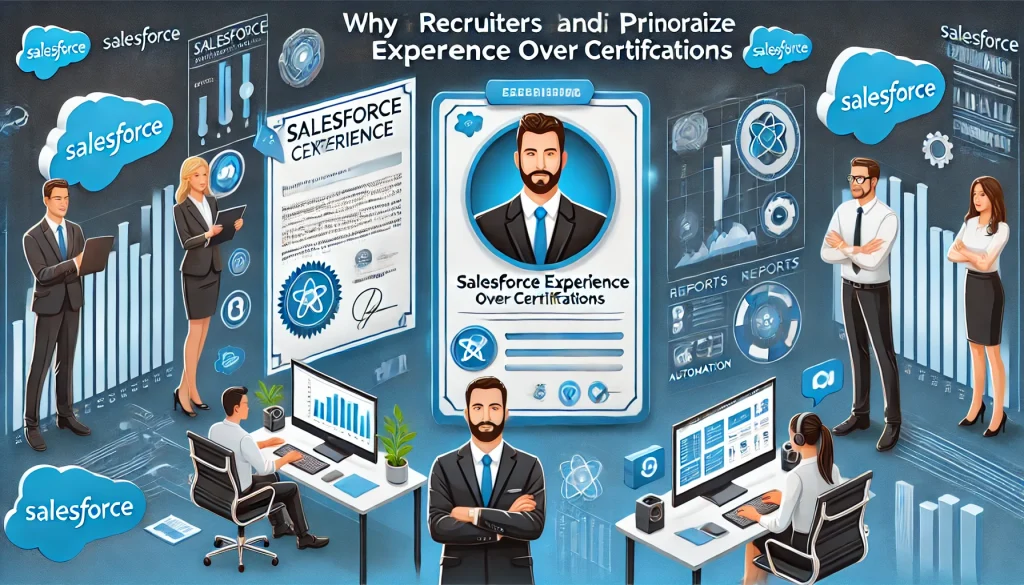
For prospective Salesforce Administrators, the journey to a rewarding career often begins with certifications. While earning a certification proves your foundational knowledge, participating in real-world Salesforce projects can set you apart in a competitive job market.
The Real Value of Salesforce Projects
Salesforce certifications provide a solid theoretical understanding of the platform’s capabilities. However, without practical exposure, it’s challenging to grasp how Salesforce operates in a dynamic business environment. Participating in projects allows you to:
- Understand Business Requirements: Projects give you hands-on experience in translating organizational needs into actionable Salesforce solutions.
- Master Problem-Solving: Working on live projects helps you identify and resolve real-world issues that can’t be replicated in training environments.
- Gain Insight into Best Practices: Exposure to projects helps you learn how experienced teams implement efficient, scalable solutions.
Why Employers Prioritize Experience Over Certifications
Hiring managers and recruiters often prioritize candidates with project experience because it proves their ability to apply Salesforce knowledge effectively. Certifications show that you know the “what” and “how” of Salesforce; projects show that you understand the “why.”
Employers value:
- Real-World Expertise: Candidates with project experience can hit the ground running, reducing training time.
- Soft Skills: Projects require communication, collaboration, and adaptability—skills that certifications alone don’t teach.
- Proven Results: Having completed projects on your resume demonstrates your ability to deliver tangible business outcomes.
How to Gain Project Experience
If you’re new to Salesforce or transitioning into a Salesforce role, gaining project experience might seem daunting. Here’s how you can get started:
- Volunteer for Nonprofits: Many nonprofits use Salesforce and welcome volunteers to help with their systems. This is an excellent way to gain hands-on experience while giving back.
- Join Salesforce Communities: Engage in local or online Salesforce groups. These communities often share opportunities to participate in collaborative projects.
- Simulate Projects: Use Salesforce’s free Developer Edition to create and execute simulated projects. Build workflows, automation, and reports to mimic real-world scenarios.
- Freelance: Offer your services to small businesses or startups that need Salesforce support but lack the budget for full-time consultants.
Projects Enhance Soft Skills
Participating in Salesforce projects not only strengthens your technical expertise but also hones soft skills like:
- Stakeholder Communication: Explaining technical concepts to non-technical audiences.
- Collaboration: Working within teams to deliver a unified solution.
- Time Management: Meeting deadlines while balancing competing priorities.
These skills make you a well-rounded professional who can contribute to an organization’s success.
Certifications and Projects: A Perfect Combination
While certifications validate your knowledge, projects validate your ability to apply it. The most successful Salesforce professionals strike a balance between the two, using certifications as a foundation and projects as a platform to showcase their skills.
Conclusion
For aspiring Salesforce Administrators, participating in projects is more than just a resume booster—it’s the key to unlocking your full potential. Real-world experience demonstrates your value to employers, boosts your confidence, and prepares you for the dynamic challenges of a Salesforce career. By combining certifications with hands-on project work, you’ll position yourself as an indispensable asset to any organization.
